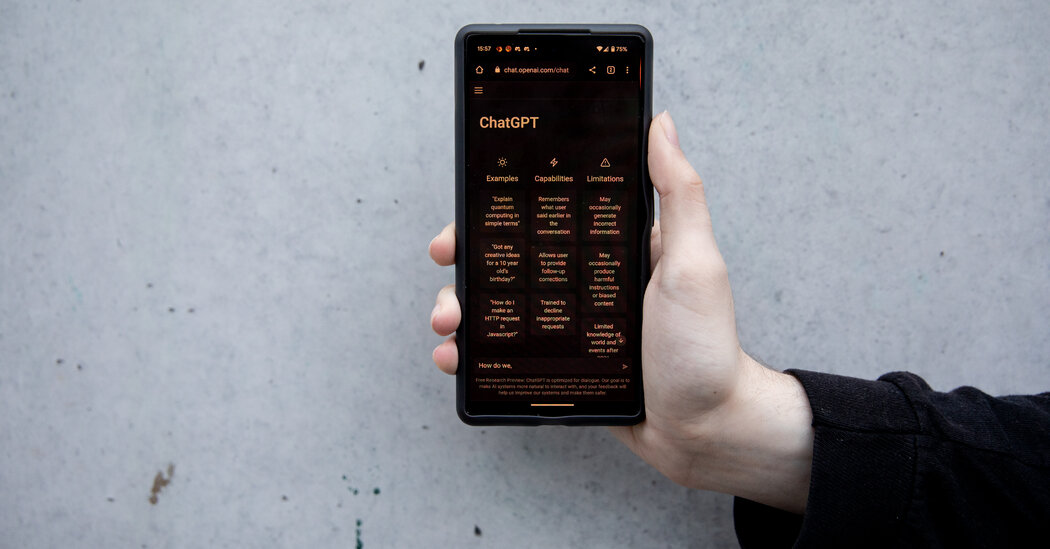Since ChatGPT debuted in November, hundreds of millions of people have experimented with the online chatbot, which can answer questions, write poetry, compose emails and elaborate on almost any topic from a web browser.
On Thursday, OpenAI, the San Francisco artificial intelligence lab behind ChatGPT, unveiled a new version of the chatbot for the iPhone, hoping to build on its massive popularity.
Unlike the browser-based version of ChatGPT, the smartphone app responds to voice commands, a bit like Apple’s digital assistant Siri or Amazon’s Alexa. The app does not reply with voice, but generates responses in text.
In a blog post, OpenAI said the app was part of its effort to turn its AI research into “useful tools that empower people while making it increasingly accessible.” It declined to comment further.
By bringing its flagship technology to billions of iPhone users, OpenAI solidifies its position among the giants of the tech industry. ChatGPT is the most prominent example of what is called generative AI, technology that can generate text, images and other media based on short prompts. Google, Microsoft and several start-ups have released similar bots and have begun introducing such technology into a wide variety of online services.
The result of more than a decade of research at companies like Google and OpenAI, these chatbots are poised to recreate everything from Internet search engines like Google Search and Bing to email programs like Gmail and Outlook.
They can generate digital text that can be used in almost any context, for example for students to write term papers and for business people to create email messages and other marketing materials.
The technology isn’t perfect. Because these chatbots learn by analyzing huge amounts of digital text collected on the internet, they cannot distinguish between fact and fiction. And the computer code they generate is often flawed.
Today, technology tends to complement human workers rather than completely replace their skills.
OpenAI isn’t the first to introduce technology that allows people to use ChatGPT with speech; some small businesses and independent developers have already done so. Microsoft also offers a version of its Bing chatbot that responds to voice commands.
The new iPhone app is free. ChatGPT Plus subscribers – available for $20 per month – can use a more powerful version of the chatbot based on a technology called GPT-4.
OpenAI began rolling out the app in the United States on Thursday and will expand to other countries in the coming weeks. A version of the app for Android phones is also in the works.

